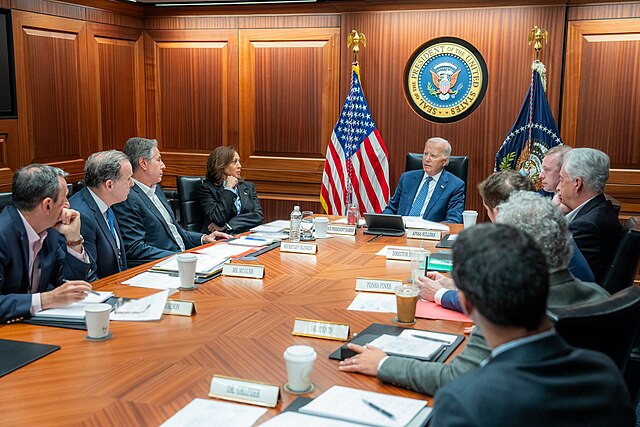As the hostage crisis in Gaza continues to intensify, the families of American hostages held by Hamas are urging the Biden administration to explore a unilateral deal with the terrorist group, bypassing Israel, in a desperate bid to secure the release of their loved ones. The possibility of such a deal is currently under consideration within the administration, according to sources familiar with the ongoing discussions.
In a high-stakes meeting on Sunday, family members of the American hostages met with National Security Adviser Jake Sullivan following the tragic deaths of six hostages, including American citizen Hersh Goldberg-Polin. During the meeting, the families expressed their growing concern that Israeli Prime Minister Benjamin Netanyahu may be unwilling to commit to a ceasefire with Hamas, which has been a significant stumbling block in the broader negotiations. The families urged the administration to consider alternatives that do not involve Israel, pressing for immediate action.
Administration officials reassured the families that all options would be considered, though they emphasized that a deal including Israel remains the most viable approach. "We have considered all possible options to free the hostages and bring them home to their families. Because of Hamas' demands, there has not been a formal offer for a side deal made because no such deal is possible," one official stated.
The potential for a unilateral U.S. deal with Hamas, while controversial, is not new. Reports from June indicated that the Biden administration had previously considered such an approach if negotiations involving Israel collapsed. Although the idea did not advance at that time, with some top officials opposing it, recent developments suggest that it may be revisited as other avenues stall.
Sources reveal that the administration even compiled a list of U.S.-held prisoners who might be of interest to Hamas, indicating a willingness to explore a trade. This list reportedly includes five individuals connected to the Holy Land Foundation for Relief and Development, who were convicted in 2008 of funneling funds to Hamas. Despite preliminary outreach to Hamas via Qatari intermediaries earlier this year, these efforts did not yield significant progress.
The Biden administration remains cautious, however. "Hamas wants two things that only Israel can deliver: a cease-fire and nearly 1,000 Palestinian prisoners currently in Israeli jails," explained a U.S. official. "Every other proposal has gone nowhere because that is what Hamas demands for the hostages."
Meanwhile, Netanyahu has been steadfast in his stance on the Philadelphi corridor, a key border area between Gaza and Egypt. He has insisted that Israel retain control over the corridor to prevent Hamas from rearming, a position that has drawn criticism from within his own security establishment and from the families of hostages. Netanyahu argues that maintaining pressure on Hamas through control of the corridor is crucial for securing the release of the remaining hostages. "You need to squeeze them, to put pressure on them to release the remaining hostages," he said during a press conference in Jerusalem.
The situation remains fraught, with no clear resolution in sight. The Biden administration is reportedly considering offering Israel and Hamas a "take it or leave it" deal, which could mark a pivotal moment in the negotiations. If both sides reject the proposal, it could spell the end of U.S.-led mediation efforts. President Biden hinted at the potential for a breakthrough earlier this week, telling reporters, "Hope springs eternal."






